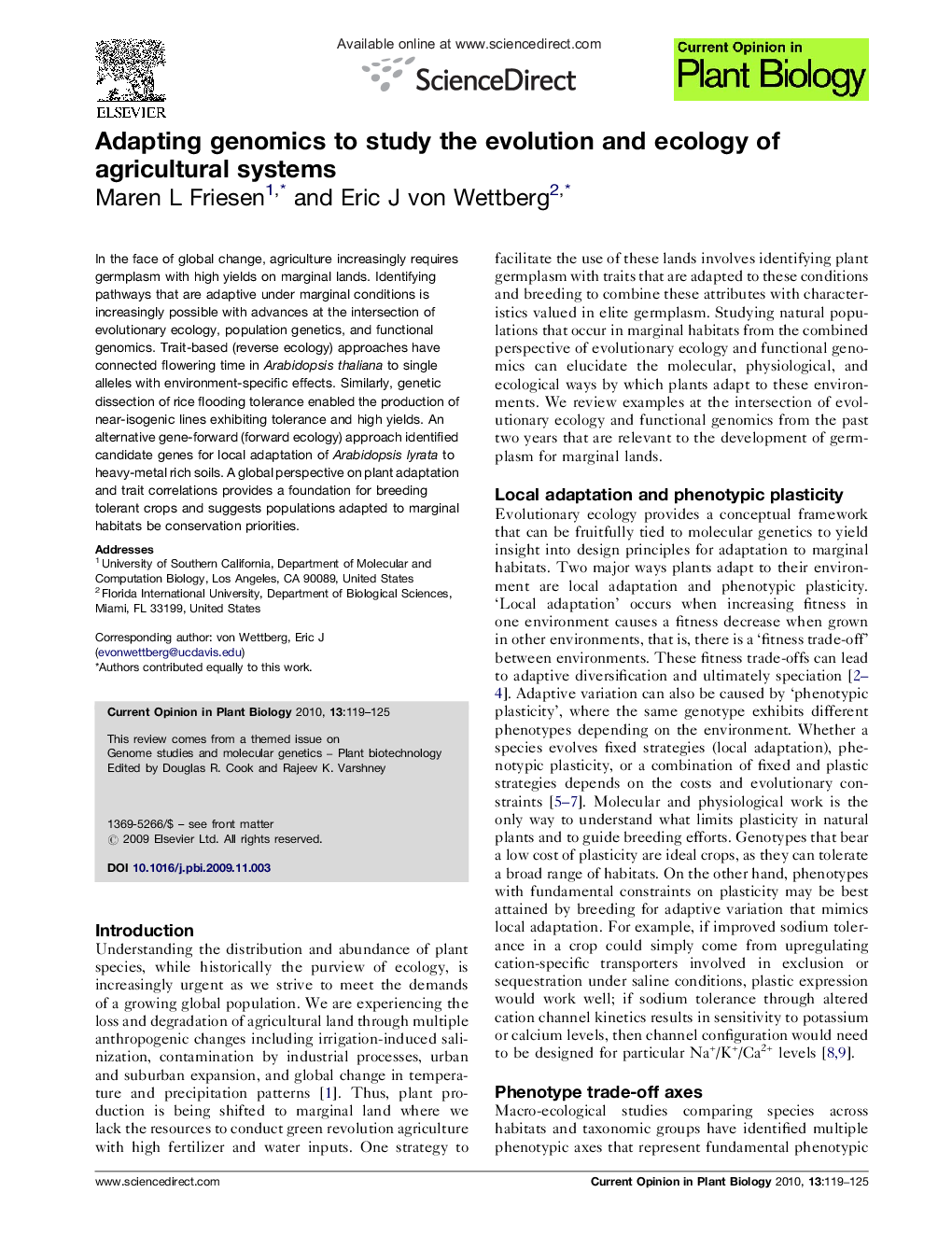| کد مقاله | کد نشریه | سال انتشار | مقاله انگلیسی | نسخه تمام متن |
|---|---|---|---|---|
| 2046354 | 1073779 | 2010 | 7 صفحه PDF | دانلود رایگان |

In the face of global change, agriculture increasingly requires germplasm with high yields on marginal lands. Identifying pathways that are adaptive under marginal conditions is increasingly possible with advances at the intersection of evolutionary ecology, population genetics, and functional genomics. Trait-based (reverse ecology) approaches have connected flowering time in Arabidopsis thaliana to single alleles with environment-specific effects. Similarly, genetic dissection of rice flooding tolerance enabled the production of near-isogenic lines exhibiting tolerance and high yields. An alternative gene-forward (forward ecology) approach identified candidate genes for local adaptation of Arabidopsis lyrata to heavy-metal rich soils. A global perspective on plant adaptation and trait correlations provides a foundation for breeding tolerant crops and suggests populations adapted to marginal habitats be conservation priorities.
Journal: Current Opinion in Plant Biology - Volume 13, Issue 2, April 2010, Pages 119–125